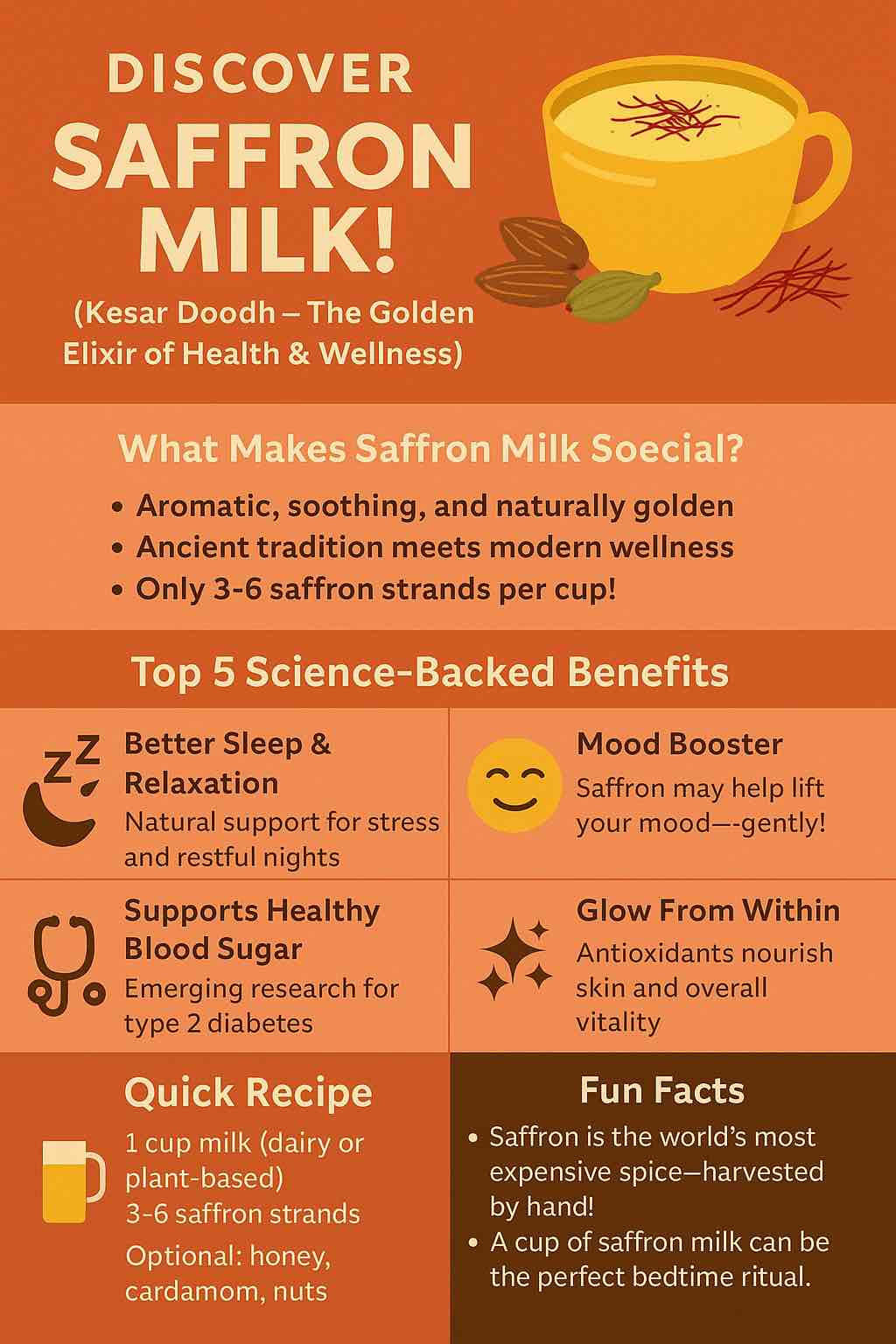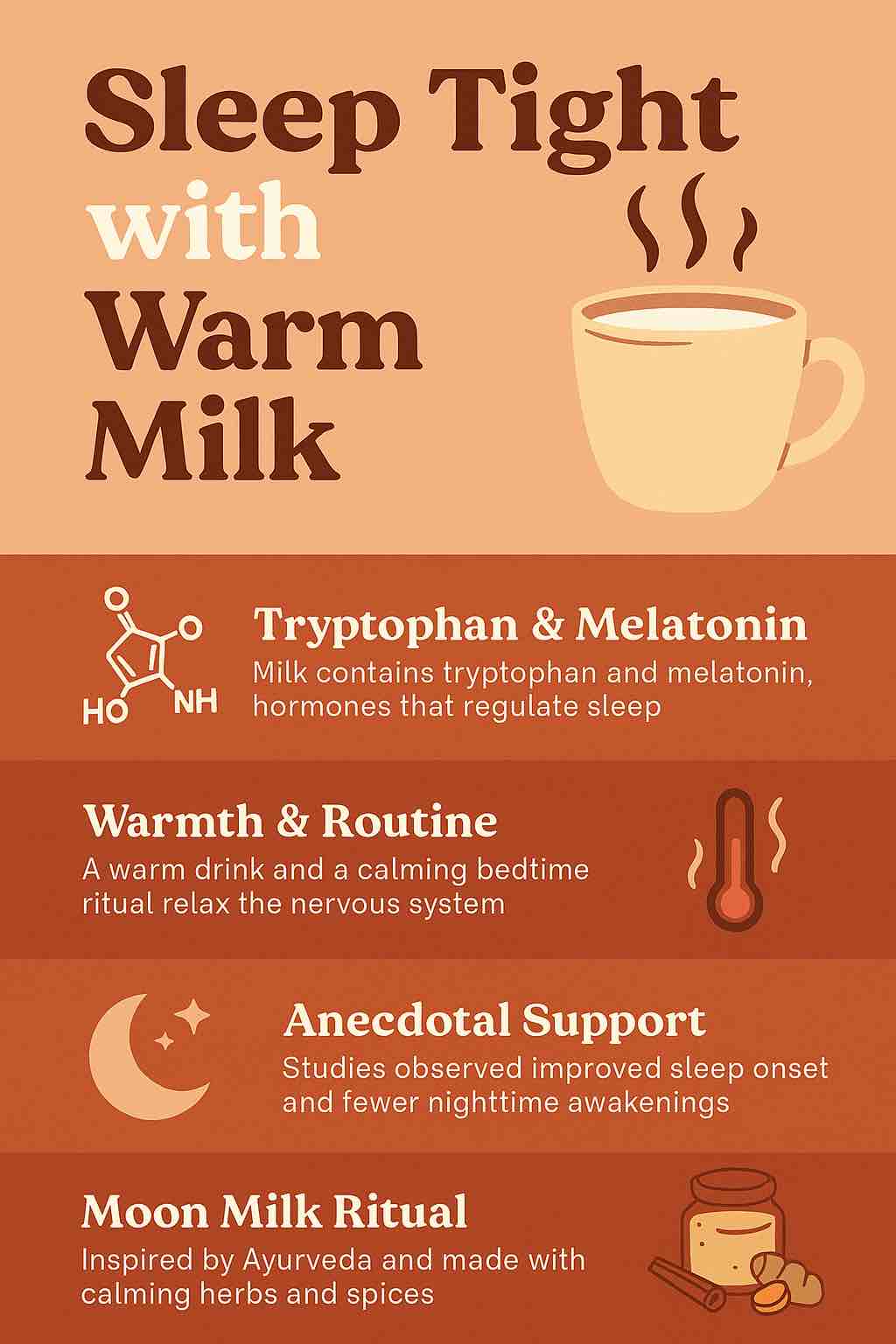
Do you ever wish your morning could start with more energy, clarity, and a touch of sunshine—even before you step out the door? If you’re tired of the same old cup of tea or coffee, you’re in for a treat! We’re sharing five vibrant, nourishing turmeric-orange drinks that will bring a tangy, golden “zing” to your morning routine. Each recipe is loaded with the natural goodness of oranges, the ancient healing of turmeric, and a little Masala Monk magic.
Why Turmeric and Orange? (And Why Now?)
There’s a reason why both turmeric and orange are trending superfoods. Let’s break it down:
- Turmeric: This golden spice is a staple in Indian kitchens and Ayurvedic medicine. Modern research confirms what our ancestors knew—turmeric’s active ingredient, curcumin, is a powerhouse for fighting inflammation, easing joint pain, and boosting immunity. But curcumin is even more effective when paired with black pepper or a healthy fat (like coconut milk).
(Looking for more healthy drinks? Dive into our 8 Anti-Inflammatory Drinks for Health & Wellness for a full rundown.) - Oranges: Sweet, juicy, and loaded with vitamin C, oranges are nature’s immune booster. They bring brightness, hydration, and a lovely tartness that balances turmeric’s earthiness.
Together, turmeric and orange are more than the sum of their parts. When you start your day with these two, you get a drink that’s refreshing, gently energizing, and truly good for you.
The Real Science: More Than Just Hype
Let’s get real: a lot of health claims online are exaggerated. Here’s what research (and experience) actually supports:
- Curcumin (in turmeric) has been studied in clinical settings for its anti-inflammatory, joint-soothing, and antioxidant effects. However, absorption is low unless paired with black pepper or healthy fats.
- Vitamin C (in orange) not only boosts immunity but may help your body use iron, recover faster, and fight oxidative stress.
- Gut support: Both turmeric and ginger (a common addition) can help ease digestion and reduce bloating—a win for busy mornings!
5 Turmeric-Orange Drinks for Your Morning Kick
1. Sunshine Turmeric-Orange Juice
Ingredients:
- 1 cup fresh orange juice (about 2 oranges)
- ½ tsp freshly grated turmeric (or ¼ tsp ground turmeric)
- ½ tsp freshly grated ginger (optional)
- Pinch of black pepper
- 1 tsp honey or agave (optional)
How to Make:
- In a glass, combine orange juice, turmeric, ginger, and black pepper.
- Stir vigorously. Add honey to balance tartness, if desired.
- Serve chilled with a slice of orange.
Tip: If you prefer pulp-free, strain before serving.
2. Golden Citrus Smoothie Bowl
Ingredients:
- 1 cup orange segments (peeled and de-seeded)
- 1 banana (frozen for creaminess)
- ½ cup frozen mango or pineapple chunks
- ¼ tsp ground turmeric
- ½ cup coconut water or almond milk
- Toppings: chia seeds, shredded coconut, berries
How to Make:
- Blend fruit, turmeric, and coconut water until thick and smooth.
- Pour into a bowl; decorate with toppings.
- Enjoy with a spoon as a refreshing breakfast.
Tip: Add a scoop of protein powder or nut butter for a more filling option.
3. Turmeric-Orange Iced Latte
Ingredients:
- ½ cup fresh orange juice
- 1 cup cold brew coffee or black tea
- ¼ tsp ground turmeric
- ½ cup almond or oat milk
- 1 drop vanilla extract
- Pinch of black pepper
How to Make:
- Mix orange juice, cold brew, turmeric, and vanilla in a shaker or jar.
- Add almond milk and black pepper; shake with ice.
- Pour into a tall glass and sip slowly.
Tip: Use coconut milk for a richer, creamier twist.
Love spicy teas? See how we pair turmeric with ginger and cinnamon in our Turmeric Ginger Cinnamon Tea for Weight Loss and Well-Being.
4. Spiced Turmeric-Orange Morning Tea
Ingredients:
- 1 cup water
- 1 orange (zest and juice)
- 1 black or green tea bag
- ¼ tsp ground turmeric
- 1 cinnamon stick
- Honey, to taste
How to Make:
- Bring water, orange zest, turmeric, and cinnamon to a gentle simmer.
- Add the tea bag and steep for 2–3 minutes.
- Strain, stir in orange juice and honey, and serve warm.
Tip: Swap in rooibos for a caffeine-free, antioxidant-rich version.
Bonus: Want more on turmeric-powered breakfasts? Our 5 Health-Boosting Turmeric and Moringa Tea Recipes are the perfect next stop!
5. Turmeric-Orange Detox Water
Ingredients:
- 1 large pitcher water
- 1 orange, sliced
- 1 lemon, sliced
- ½ inch fresh turmeric, sliced (or ½ tsp ground)
- ½ inch fresh ginger, sliced (optional)
- Fresh mint leaves
How to Make:
- Add all ingredients to a pitcher.
- Let infuse in the fridge for at least 2 hours (overnight is best).
- Pour over ice for a hydrating, anti-inflammatory sip all day long.
Tip: Great for meal prep—just refill with water as you go!
If you’re all about functional beverages, don’t miss our Cinnamon and Turmeric Twist: DIY Electrolyte Drinks for post-workout hydration!
Practical Tips for Turmeric-Orange Perfection
- Always add black pepper: Even just a pinch helps your body absorb curcumin from turmeric.
- Fresh root vs. powder: Fresh turmeric root gives a brighter, slightly floral flavor, while powder is earthier and convenient. Both work.
- Mind the stains: Turmeric stains easily—use a glass container and wipe up spills promptly.
- Balance flavors: If the turmeric is too strong, increase citrus or add a splash more honey.
The Real Benefits: What Does the Science Say?
- Digestive and gut support: Both turmeric and ginger are noted for easing digestion and soothing minor discomforts.
- Joint and muscle wellness: Regular turmeric intake is associated with reduced inflammation and milder joint pain, especially when combined with black pepper.
- Immune system boost: Vitamin C, antioxidants, and the synergy of these ingredients help your body fend off illness.
- Mood and energy: Anecdotally, people report increased morning alertness and lighter moods with these zesty drinks.
Note: While the health benefits of curcumin are well documented in supplement form, the amounts found in daily drinks are modest but can add up over time as part of a balanced diet.
What’s Trending: Market Insights & New Innovations
- Turmeric-orange blends are now available as ready-to-drink (RTD) beverages in stores, sometimes mixed with ginger, mint, or other functional botanicals.
- Turmeric coffee (“golden latte”) and wellness shots are trending, often fortified with enhanced curcumin for better absorption.
- Consumers are moving towards low-sugar, vegan, and preservative-free options—you can easily tailor these recipes at home for your needs.
- In Asia-Pacific and India, turmeric-based beverage sales are rapidly growing, reflecting a shift towards holistic health.
📝 Loved this post? Here are more Masala Monk guides you’ll love:
- 8 Anti-Inflammatory Drinks for Health & Wellness
- Cinnamon and Turmeric Twist: DIY Electrolyte Drinks
- The Benefits of Turmeric Ginger Cinnamon Tea
- 5 Health-Boosting Turmeric and Moringa Tea Recipes
Final Thoughts: Start Your Day with Citrus Zing!
Whether you’re looking to boost your immunity, support joint health, or just want a zesty, refreshing way to begin your morning, turmeric-orange drinks deliver flavor and functional benefits in every sip.
Try one (or all) of these recipes, experiment with your own twists, and share your favorite blends with friends and family. Remember, a little golden goodness goes a long way—especially when it tastes this good.
Ready to turn your mornings into a ritual of wellness and zing? Give these turmeric-orange drinks a try, and let the sunshine in!
Do you have a favorite variation or a tip for making turmeric-orange drinks even better? Drop a comment below, or share your recipe on social with the hashtag #CitrusZing!
FAQs: Citrus Zing – Turmeric-Orange Drinks
1. Is it safe to drink turmeric-orange juice every day?
Yes, most people can safely enjoy turmeric-orange drinks daily in moderate amounts. Stick to about ¼–½ teaspoon of turmeric per serving, and consult your doctor if you have health conditions or take medications that interact with turmeric (such as blood thinners).
2. Why do I need to add black pepper to turmeric drinks?
Black pepper contains piperine, which dramatically increases your body’s absorption of curcumin (the active compound in turmeric). Even a small pinch makes a big difference!
3. Can I use ground turmeric instead of fresh root?
Absolutely! Both forms are healthy. Fresh root gives a more vibrant, floral flavor, while ground turmeric is more convenient and easy to store. Adjust the quantity to taste.
4. Will turmeric stain my blender or pitcher?
Turmeric can stain plastic and some countertops. Use glass or stainless steel containers when possible, and wash items soon after use with warm, soapy water.
5. Can I make these drinks in advance and store them?
Yes, most turmeric-orange drinks will keep well in the fridge for 1–2 days. For the freshest taste, stir or shake before serving as the spices may settle.
6. Can I skip the sweetener or make these drinks sugar-free?
Definitely! Most recipes can be made with no sweetener, or you can use stevia, monk fruit, or simply let the orange’s natural sweetness shine.
7. Are turmeric-orange drinks safe for children?
In small amounts, yes. Children over the age of 1 can generally enjoy these drinks, but keep turmeric amounts low (⅛ teaspoon per serving) and skip the black pepper for very young kids.
8. Do these drinks help with weight loss?
Turmeric and citrus can support digestion and metabolism, but there’s no magic bullet. Pair these drinks with a balanced diet and active lifestyle for best results.
9. Can I add other spices or ingredients?
Absolutely! Try ginger, cinnamon, mint, or lime for variety. Coconut water or almond milk also make great bases for smoothies or lattes.
10. What if I don’t have a juicer or blender?
No problem—simply use store-bought pure orange juice, and mix the turmeric and other spices directly in a glass. Use a whisk or shaker for best results.













